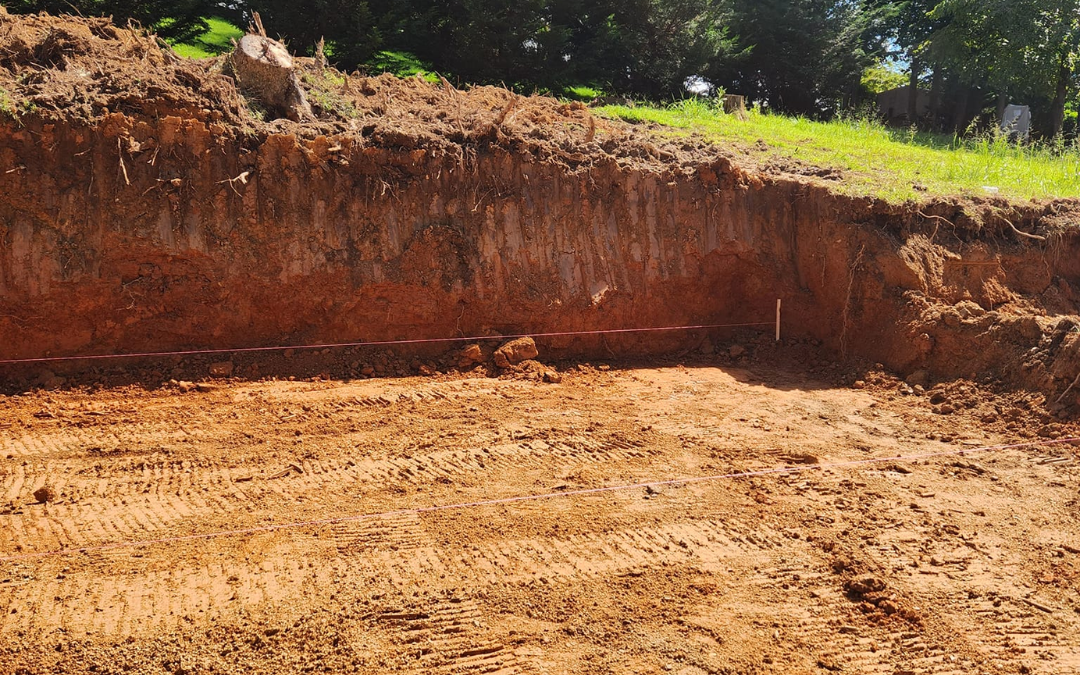If you are building a new home or preparing land for development, excavation is one of the most critical steps. A well-planned excavation process sets the foundation for proper drainage, structural stability, and a successful construction project. However, many first-time property owners overlook the importance of site surveys, permits, and soil conditions, leading to costly delays and potential structural issues.
This guide covers essential excavation tips, including:
- The importance of a site survey before excavation
- Understanding permits and legal requirements
- How soil conditions affect construction plans
By following these steps, property owners can avoid common mistakes and ensure a smooth excavation process.
The Importance of a Site Survey Before Excavation
Before excavation begins, a professional site survey is essential. This step ensures that the project follows legal requirements, is free of major obstacles, and is safe for construction.
Why a Site Survey Matters
- Identifies property boundaries to prevent disputes with neighbors
- Detects underground utilities, such as gas, water, and electrical lines, to avoid hazardous accidents
- Reveals elevation and drainage issues that could cause erosion or flooding
- Checks for environmental concerns, including unstable soil or protected land
How to Conduct a Site Survey
- Hire a licensed land surveyor to map out the property
- Request a topographic survey to assess elevation and grading requirements
- Contact utility companies or use the “Call Before You Dig” service (811) to mark underground lines
Skipping a site survey can lead to unexpected complications, increased project costs, and delays. A thorough survey provides a clear understanding of the land before excavation begins.
Understanding Permits and Legal Requirements
Excavation is not just about digging. It also involves complying with local regulations to ensure safety and prevent legal issues.
When an Excavation Permit is Required
Most areas require a permit for excavation projects that involve:
- Digging for foundations, septic systems, or utility installation
- Modifying natural drainage patterns or working near wetlands
- Removing large amounts of soil, trees, or rocks
How to Obtain an Excavation Permit
- Contact the local city or county office to determine which permits are required.
- Submit an application with project details, including site plans, contractor information, and environmental impact assessments.
- Schedule an inspection before and after excavation to ensure compliance with local regulations.
Consequences of Skipping the Permit Process
- Fines and legal penalties for unauthorized excavation
- Project delays due to stop-work orders from local authorities
- Safety risks if excavation violates building codes or environmental protections
Working with a professional excavation contractor can simplify this process, as they often handle permitting and inspections on behalf of property owners.
How Soil Conditions Affect Construction Plans
The type and condition of soil on a property significantly impact excavation and foundation stability. Understanding soil conditions before excavation begins can prevent costly delays and structural failures.
Common Soil Types and Their Impact on Excavation
- Clay Soil – Expands when wet and shrinks when dry, leading to foundation movement and cracks.
- Sandy Soil – Drains well but shifts easily, making it challenging to support heavy structures.
- Loamy Soil – Ideal for construction, as it offers good drainage and stability.
- Rocky Soil – Requires specialized equipment for excavation, which may increase costs.
- Peat or Silt Soil – Poor for building due to high moisture content, which can cause sinking or instability.
Testing Soil Before Excavation
- Hire a geotechnical engineer to test soil composition, moisture levels, and load-bearing capacity.
- Conduct a percolation test if installing a septic system to check water drainage through the soil.
- Adjust excavation plans based on test results, which may include additional soil compaction, drainage solutions, or soil replacement.
Benefits of Soil Testing Before Excavation
- Reduces unexpected costs by identifying potential issues early
- Ensures a strong foundation by addressing unstable soil conditions
- Prevents construction delays by allowing necessary adjustments before work begins
By conducting proper soil analysis, property owners can make informed decisions that protect their investment and ensure long-term structural stability.
Proper Planning Leads to a Successful Excavation
Excavation is more than just removing dirt. It is a crucial step in preparing a property for long-term stability and durability. Conducting a site survey, securing the necessary permits, and testing soil conditions can help avoid costly mistakes and ensure a smooth construction process.
Why Choose Sheets Excavation & Land Management LLC?
- Experienced excavation professionals who handle site surveys, permitting, and soil analysis
- Proper equipment for efficient and high-quality excavation
- Expert guidance to ensure excavation is done correctly the first time
Call Sheets Excavation & Land Management LLC at (276) 706-6845 or visit our website to schedule a consultation. Our team is ready to assist with all your excavation needs!

